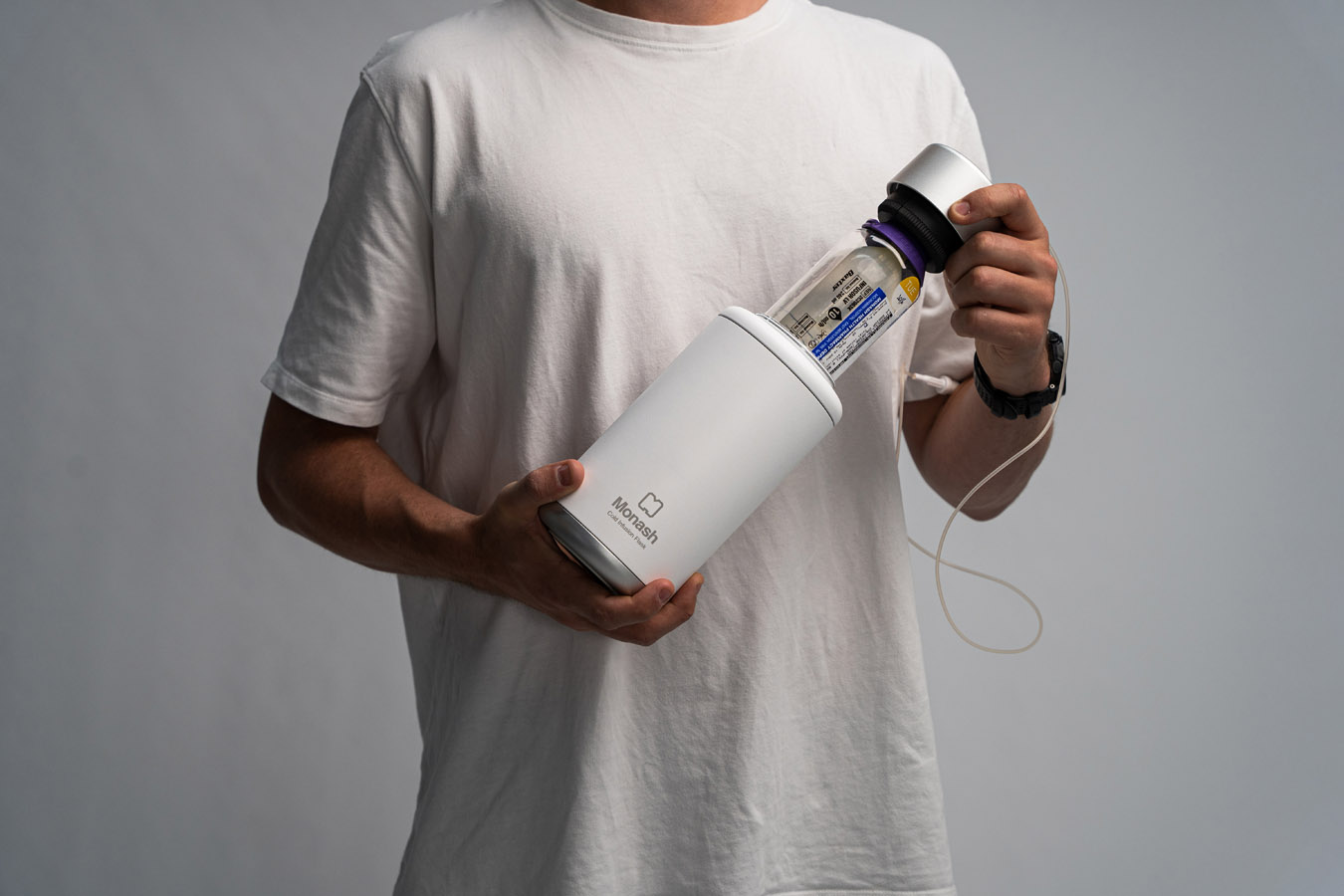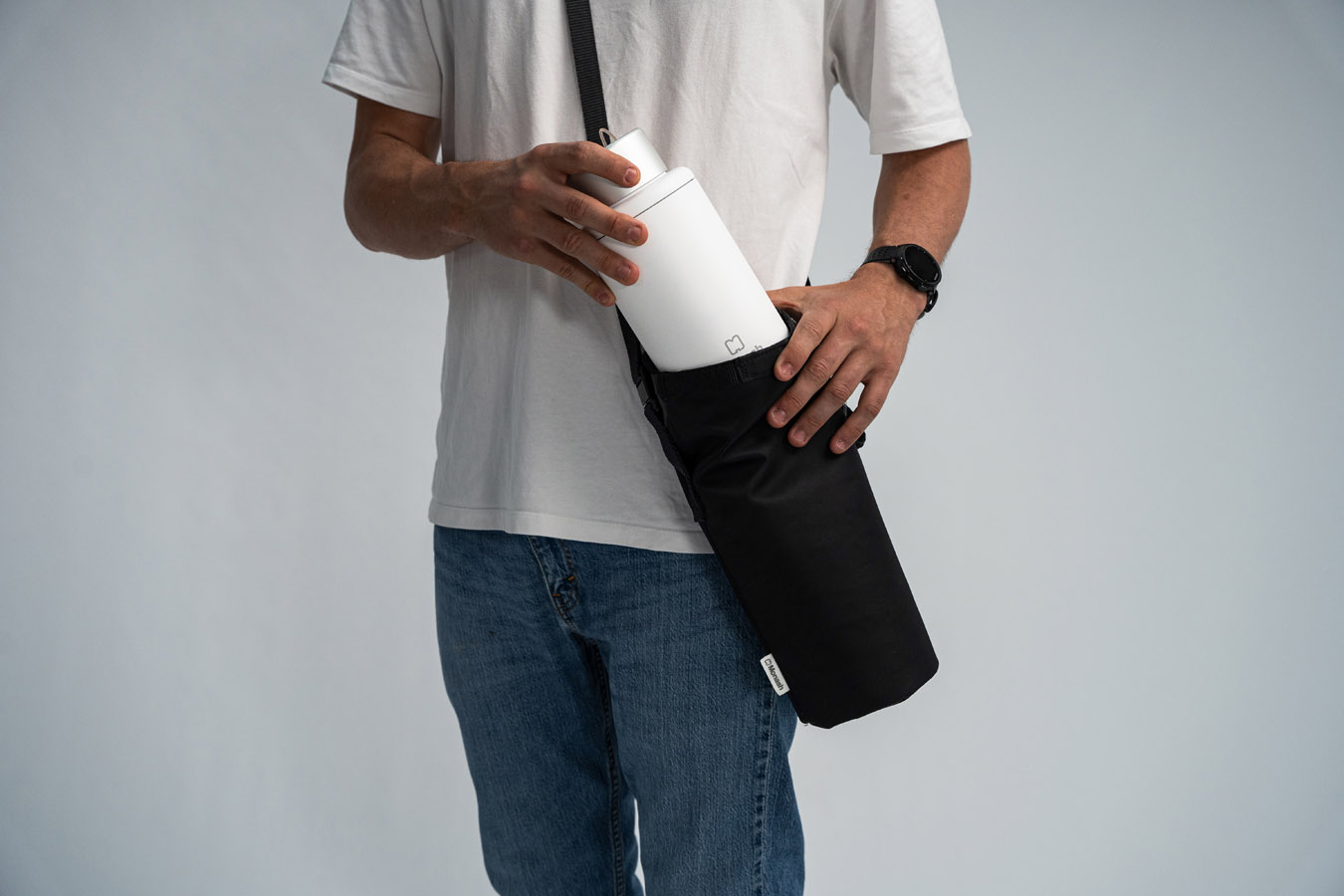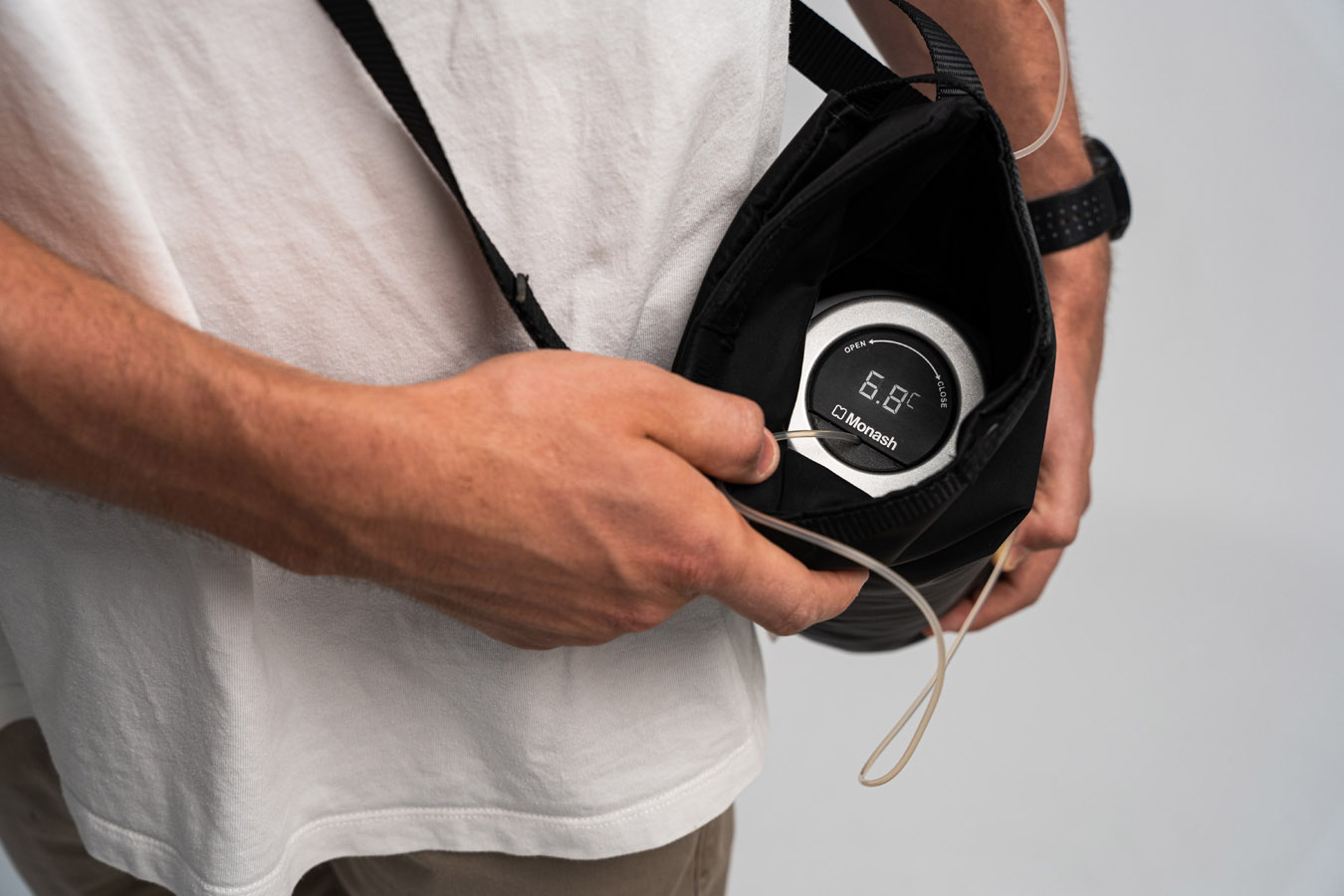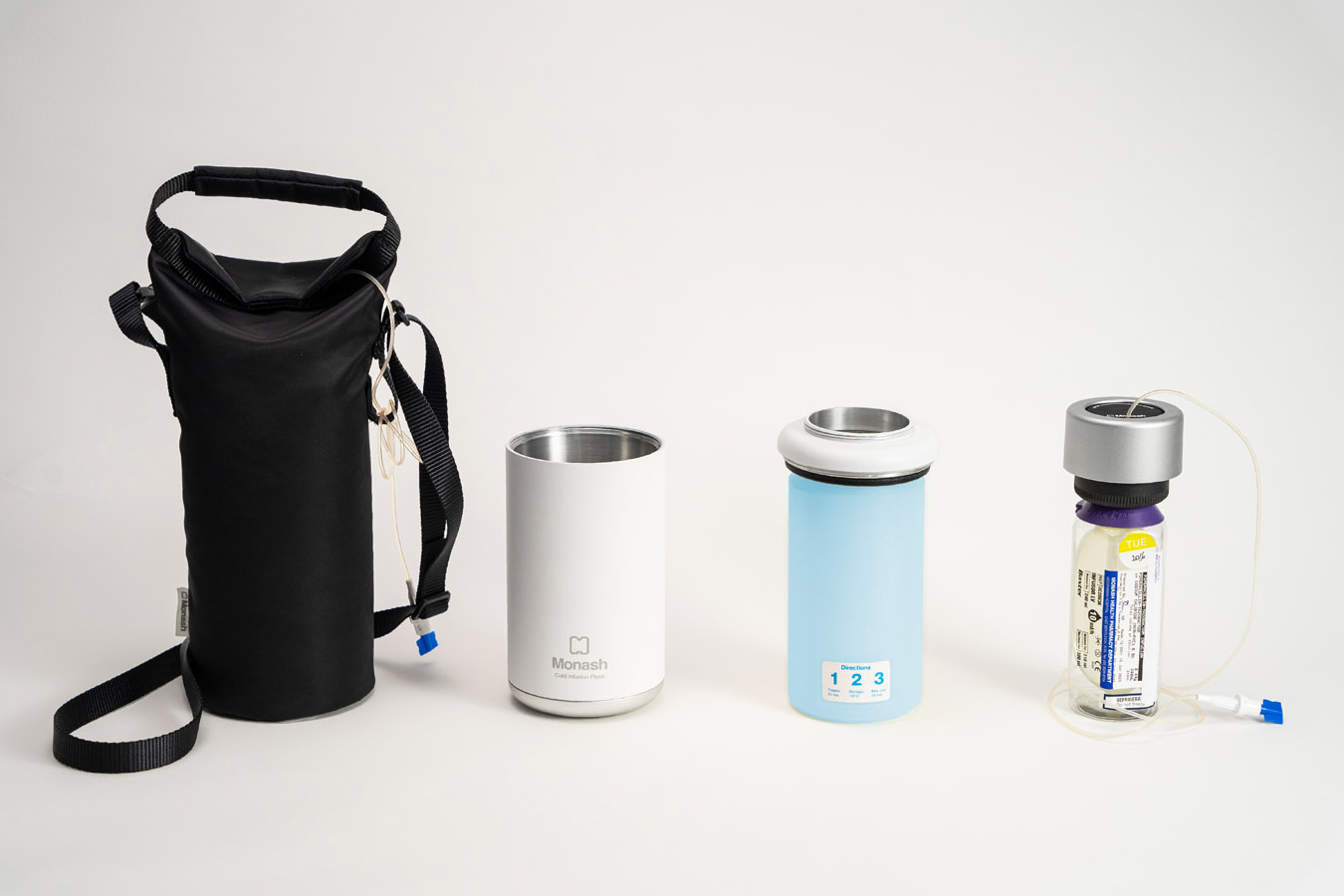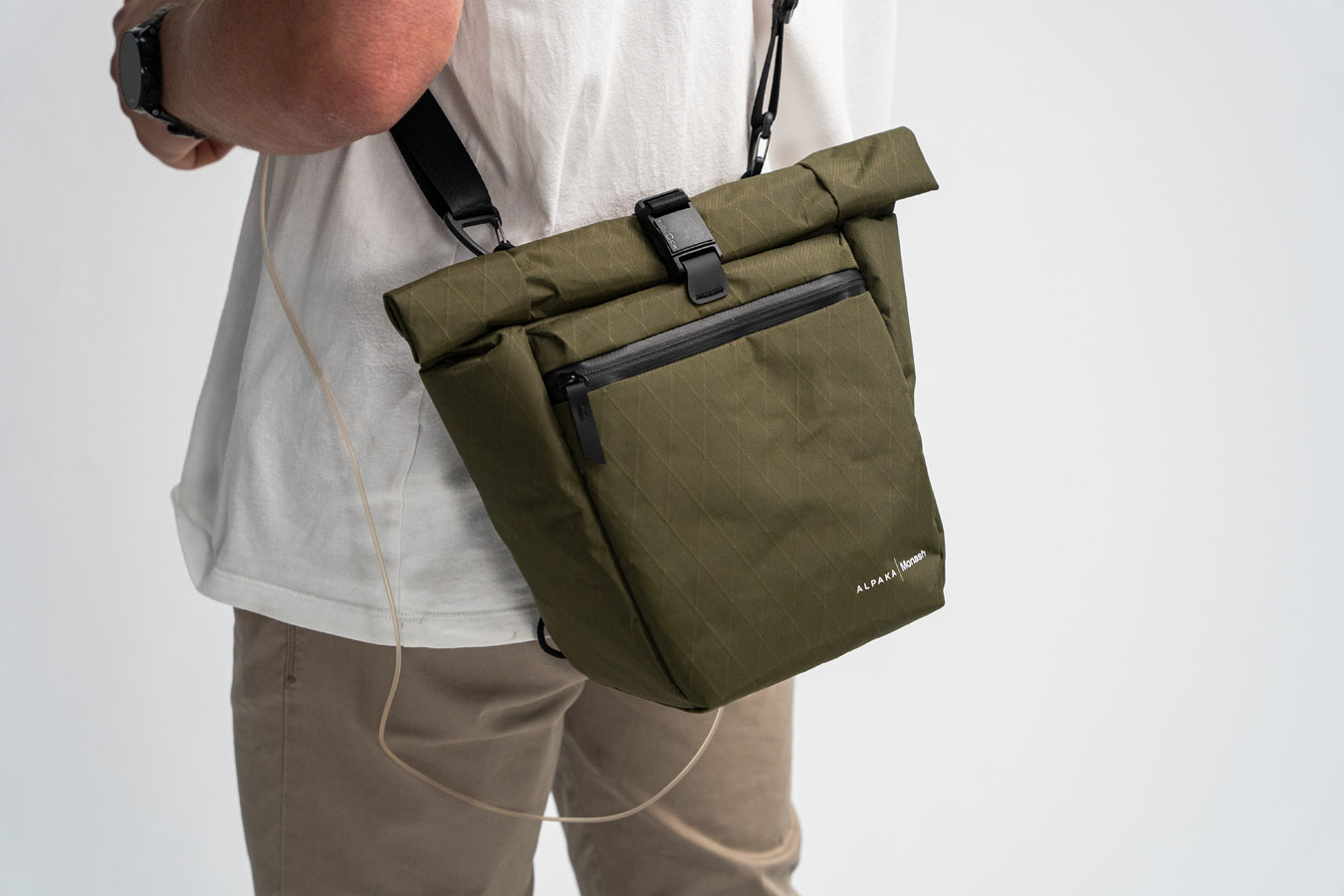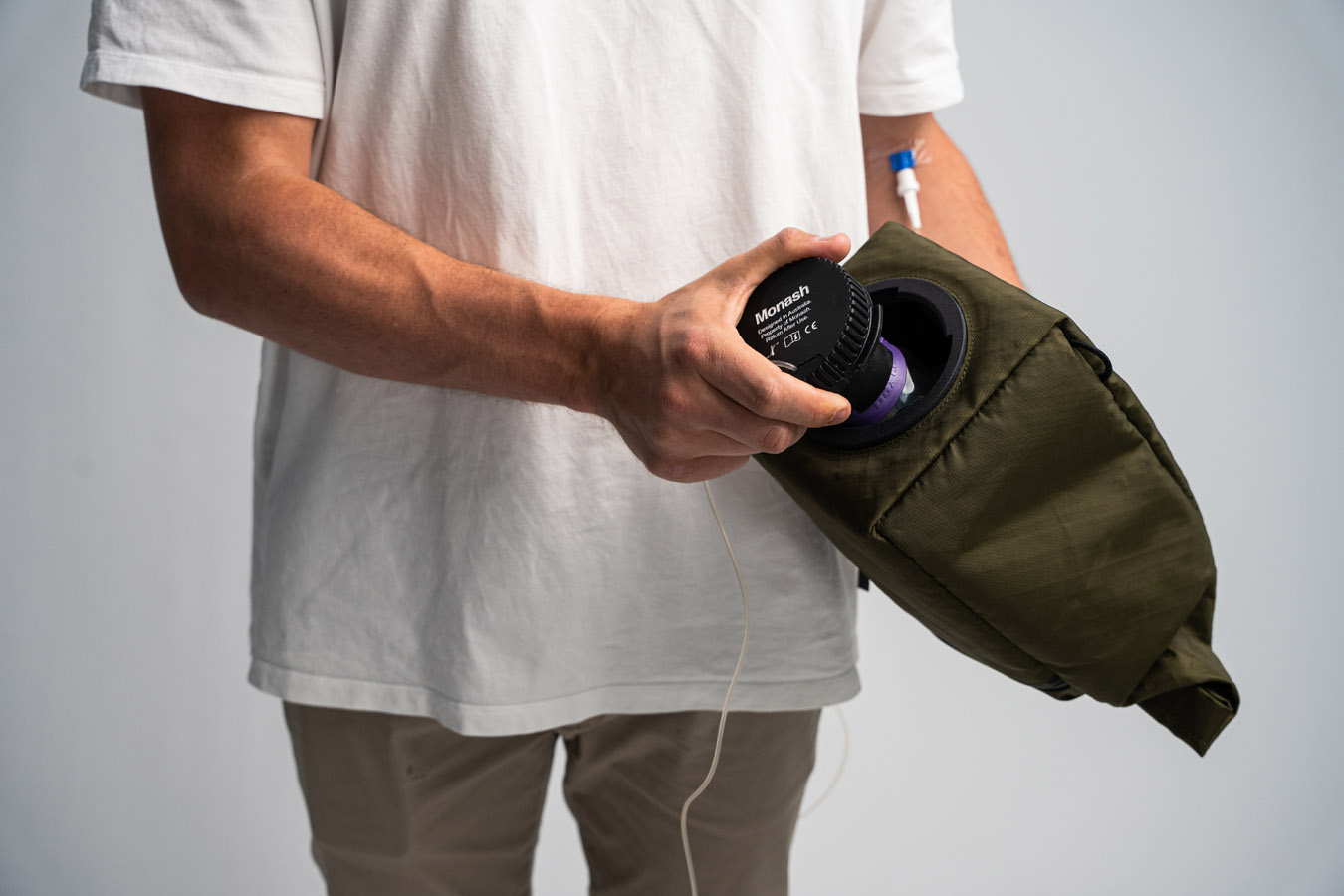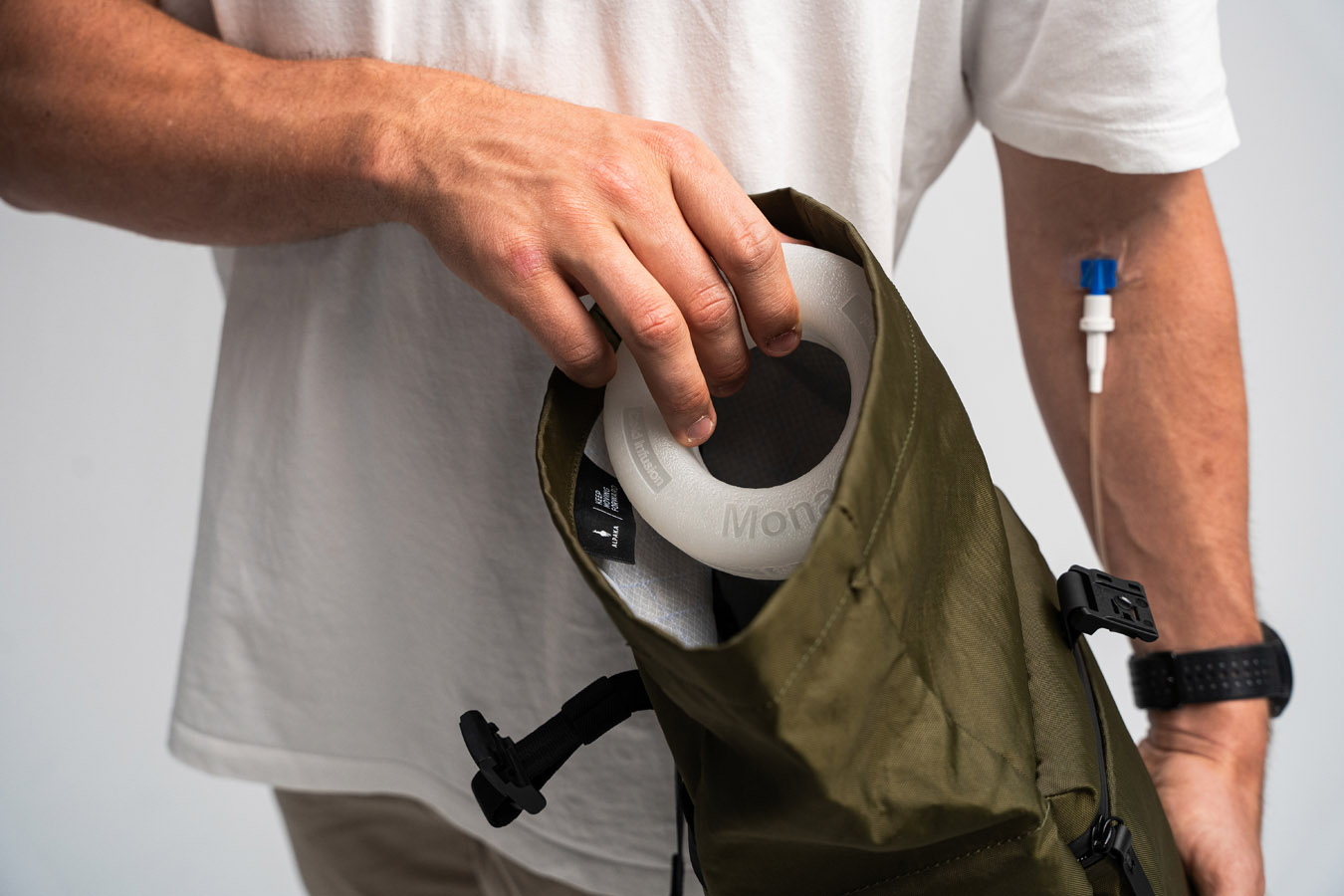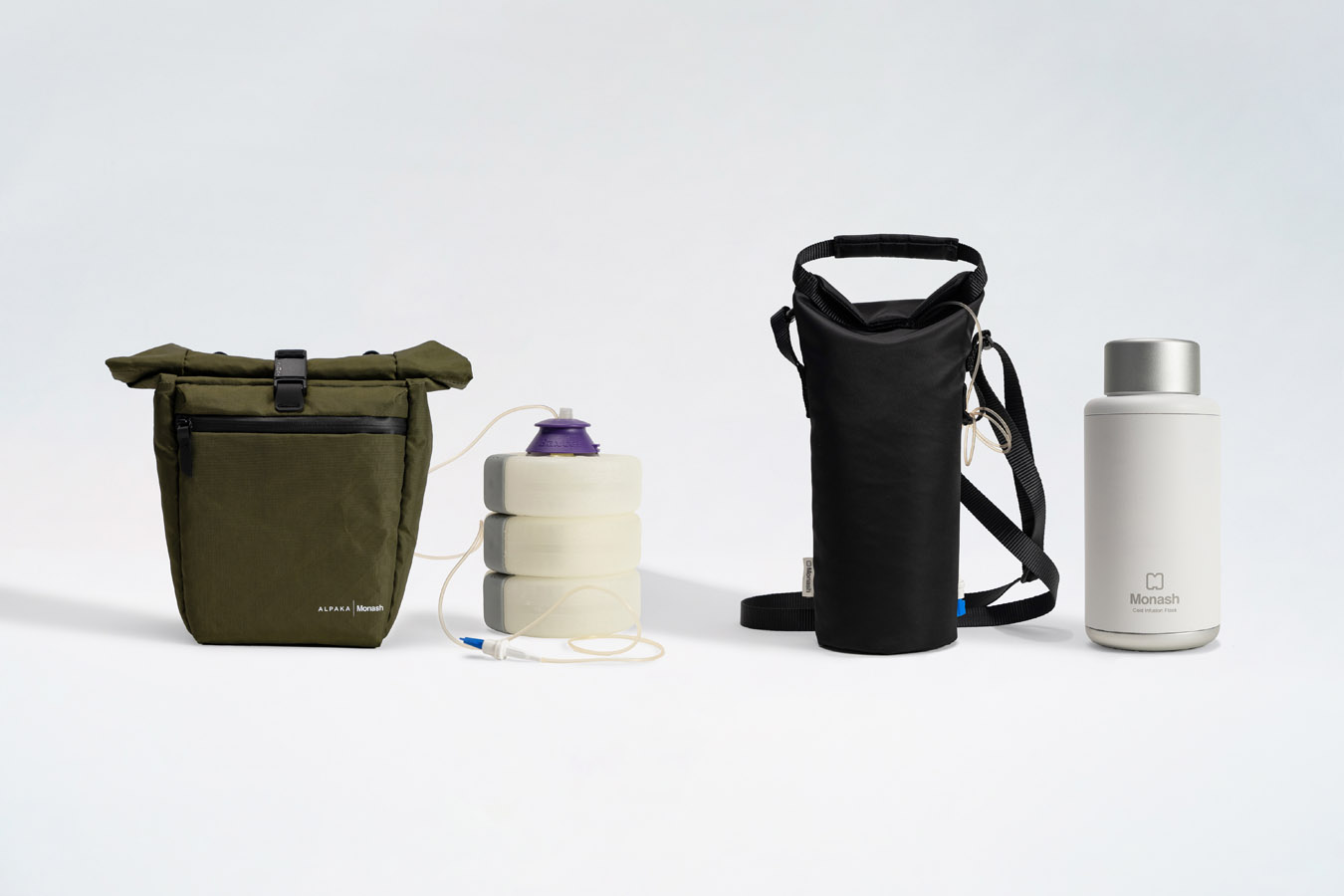CryoCare sought to understand the experiences of patients receiving continuous infusion antibiotics through HITH services. Recognising the invasive nature of treatment via a peripherally inserted central catheter (PICC), field research was conducted, including patient interviews, detailed observations of HITH clinicians, dietitians, and pharmacists as they integrated the device into their workflows, and autoethnographic studies to deeply understand the challenges patients could potentially face while wearing CryoCare. Utilising a Research-through-Design (RtD) methodology, we synthesised these insights into two design directions: a hard vacuum-insulated flask and a soft insulated cooler bag. The flask prototype had greater thermal retention but presented issues in comfort and wearability due to its weight and rigidity. Conversely, the cooler bag offered enhanced range of motion, movement, and flexibility, but necessitated more frequent ice pack replacements. Through iterative testing and patient feedback, these prototypes were refined, leading to optimised carrying positions and improved user comfort. Comprehensive bench tests evaluated various phase change materials over 24-hour periods, resulting in refined computational models for optimal material composition. This rigorous testing process led to the development of segmented ice packs for improved storage and a thermoelectric dock for continuous cooling at home. The detailed design execution included the integration of OLED screens to display internal temperature and infusion status, reducing patient responsibility and increasing reliability. The final designs were professionally produced with industry partners ALPAKA, and Soft Serve Studios, using high-quality materials and details, ensuring durability and patient satisfaction. CryoCare resulted in two innovative, patient-centric solutions that maintain the necessary cold temperatures for temperature-sensitive antibiotics while significantly enhancing usability and comfort. Through a dual focus on clinical efficacy and user experience, these solutions meet desired clinical needs and enhance the overall quality of life for HITH patients and their carers, offering increased dignity and independence during treatment.
CryoCare is a wearable device for community-based continuous infusions of temperature-sensitive antibiotics, ensuring drug stability, enhancing comfort, and promoting recovery.
CryoCare explores two patient-centered solutions for delivering continuous infusion antibiotics via Hospital-in-the-Home services, ensuring temperature-sensitive antimicrobials remain stable over 24-hours. Outcome A features a vacuum-insulated flask, paired with a carrier bag to enhance mobility and comfort. The flask utilises an OLED screen to display temperature and infusion status, reducing patient responsibility as nurses manage daily replacements. Outcome B presents a soft insulated cooler bag lined with a reflective Aerogel insulation, offering superior comfort and versatility. The outcome supports both passive and active cooling, using a thermoelectric dock for continuous home use, while ice packs can be used for short outings.
Design Brief:
As antimicrobial resistance intensifies, hospitals face increased pressure due to bed shortages and the risks of hospital-acquired infections. Hospital-in-the-Home (HITH) services address these challenges by allowing patients to receive essential intravenous antibiotic treatments at home, freeing up hospital beds, reducing infection risks, and enhancing patient outcomes. However, certain temperature-sensitive and unstable antimicrobials require chilled delivery, often necessitating prolonged hospital stays.
Extensive research, including a comprehensive literature review, interviews with 25 patients, and autoethnographic studies, revealed significant challenges with the current elastomeric infusers, particularly regarding usability, comfort, and patient mobility. This highlighted the urgent need for a new device that not only maintains the required cold temperatures for clinical needs but also enhances patient comfort, usability, and dignity. The goal was to design an innovative, wearable solution that ensures drug stability during continuous infusions, empowering patients to manage their treatments effectively at home while maintaining their quality of life and independence.
This project was developed by:
- Geoffrey Thompson
- Rowan Page
- Ben Rogers
- Monash Design Health Collab
- Monash Health
- ALPAKA Gear

